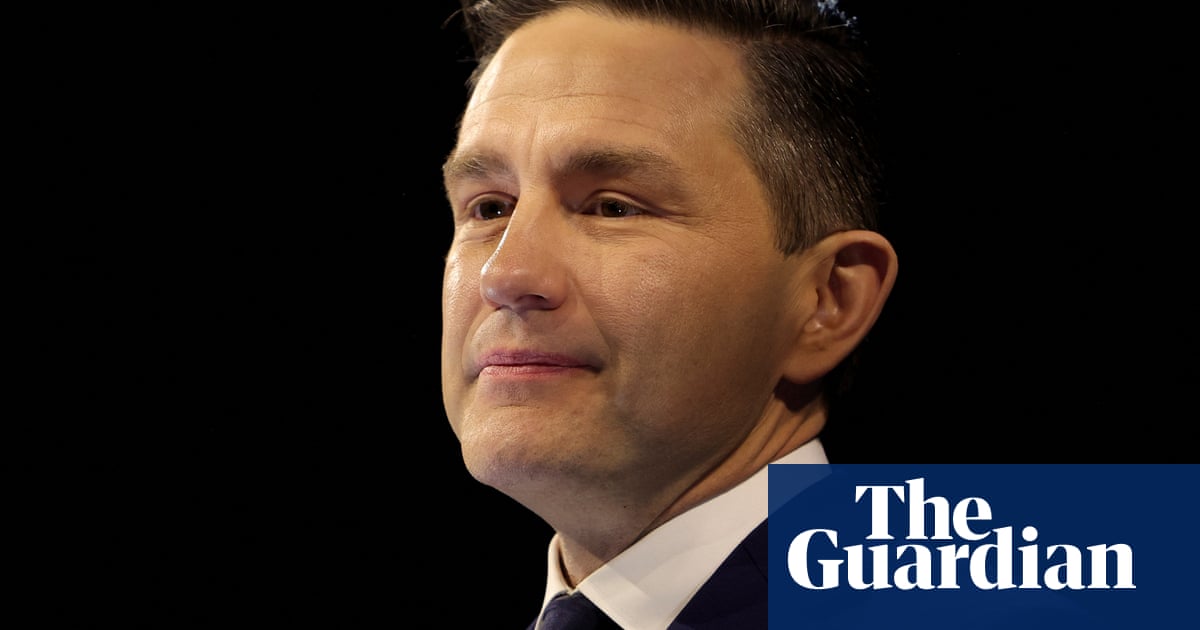Canada’s Conservative leader, Pierre Poilievre, has lost his own seat in the country’s general election, in a stunning blow for the 45-year-old career politician who until recently had beenwidely expected tobecome the country’s next prime minister.
Although Conservatives increased both their seat count and vote share,Mark Carney’s Liberal party secured control of parliament, and Poilievre’s defeat in the Carleton electoral district is certain to fuel mounting questions over his future as party leader.
Once considered a long shot, the Liberal party candidate Bruce Fanjoy flipped the Carleton riding which Poilievre had held for seven consecutive elections. The two men were among 91 candidates on the ballot – most of whom were part of a protest calling for electoral reform.
In a speech late on Monday, Poilievre conceded the election, but pledged to stay on as Conservative leader, saying it was an “honour” to hold the role.
“To my fellow Conservatives, we have much to celebrate tonight. We’ve gained well over 20 seats,” Poilievre said. “We are cognizant of the fact that we didn’t quite get over the finish line. Yet we know that change is needed, but change is hard to come by. It takes time.”
But without a seat in the House of Commons, Poilievre cannot serve as leader of the official opposition, and it is alsounclear if he can retain his residenceat Stornoway, the official residence of the opposition leader.
If he does stay on as leader, Poilievre will need a Conservative MP to sacrifice their seat, allowing to him run in the by-election to fill the vacancy. That process takes time – Canada’s governor general must call the election between 11 and 180 days after being notified of the seat vacancy – and in all likelihood, Poilievre would not be able to return to parliament until the fall sitting.
In recent weeks, Conservative officials confirmed to the Guardian that there was growing tension within the party over Poilievre’s leadership – and speculation that he would soon be forced out.
“There will be a need for bloodletting,” said one senior member. “That could be the leader, or it could be the campaign manager. But there are some who feel the party fell far short of its goal – to win. And there is a price.”
Poilievre became the youngest MP in Canadian history at the age of 25, and became Conservative leader in 2022. A sharp-tongued political brawler who cultivated a populist image, he became a lightning rod for discontent with the former prime ministerJustin Trudeauover whom he at one point enjoyed a 25-point lead.
WhenDonald Trumpbegan to threaten Canada’s economy and autonomy – and then Trudeau stood down to be replaced by Mark Carney – Poilievre found himself on the wrong side of a surge of patriotic anger.
Despite Poilievre’s personal defeat, the Conservatives did, however, win enough seats to form the largest official opposition in Canadian history at the expense of other opposition parties.
And Poilievre was not the only party leader to lose his place in parliament: Jagmeet Singh, leader of the progressive New Democrats also failed to retain his Burnaby seat as the party saw its vote share collapse.
“It’s been the honour of my life to represent the people of Burnaby Central,” he said in an emotional speech, in which he announced his resignation as party leader. “Tonight they chose a new member of parliament and I wish them well.”
The New Democrats – who held the balance of power after the 2021 federal election – were on track to lose 17 of the 24 seats they had in the last parliament and are likely to lose official party status.
The loss of party status means the NDP will lose certain parliamentary privileges, including the ability to ask questions during question period as often as recognized parties. The NDP will also lose out on accessing money allocated to parties for research purposes, which is distributed proportionally to the number of seats held by a recognized party.
The Green party’s co-leader Jonathan Pedneault also lost his bid to represent a district in Montreal.
